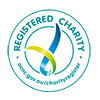 More than 1,000 women die from ovarian cancer annually in Australia alone. Prince of Wales Hospital Oncologist Dr Yeh Chen Lee says ovarian cancer is known as the silent killer “because there are no symptoms until it’s too late.” Dr Yeh Chen Lee is a clinician-investigator with subspecialty expertise in gynaecological cancers and soft tissue sarcomas. She works as a medical oncologist at Prince of Wales Hospital and Royal Hospital for Women and is a senior research fellow at the National Health and Medical Research Council (NHMRC) Clinical Trials Centre. Dr Lee has dedicated her life as an oncologist, treating people with ovarian cancer as ‘patients with ovarian cancer are most vulnerable. They don’t really get any warnings and their life are basically put on halt the moment they receive their diagnosis. The symptoms can be vague, such as bloating, tummy pressure and discomfort, feeling easily tired. More often than not, women may think they are just going through menopause, or feeling stressed from work, or gaining weight.’ To make matters worse, there is no effective screening test for ovarian cancer. Known as the ‘silent killer’, ovarian cancer symptoms only become more apparent when the cancer is already at an advanced stage. ‘Research is the only way we can make incremental discoveries and treatment breakthroughs in ovarian cancer. As much as cancer research takes time and lots of efforts, most importantly we need the investment and funding support.’
More than 1,000 women die from ovarian cancer annually in Australia alone. Prince of Wales Hospital Oncologist Dr Yeh Chen Lee says ovarian cancer is known as the silent killer “because there are no symptoms until it’s too late.” Dr Yeh Chen Lee is a clinician-investigator with subspecialty expertise in gynaecological cancers and soft tissue sarcomas. She works as a medical oncologist at Prince of Wales Hospital and Royal Hospital for Women and is a senior research fellow at the National Health and Medical Research Council (NHMRC) Clinical Trials Centre. Dr Lee has dedicated her life as an oncologist, treating people with ovarian cancer as ‘patients with ovarian cancer are most vulnerable. They don’t really get any warnings and their life are basically put on halt the moment they receive their diagnosis. The symptoms can be vague, such as bloating, tummy pressure and discomfort, feeling easily tired. More often than not, women may think they are just going through menopause, or feeling stressed from work, or gaining weight.’ To make matters worse, there is no effective screening test for ovarian cancer. Known as the ‘silent killer’, ovarian cancer symptoms only become more apparent when the cancer is already at an advanced stage. ‘Research is the only way we can make incremental discoveries and treatment breakthroughs in ovarian cancer. As much as cancer research takes time and lots of efforts, most importantly we need the investment and funding support.’
The Oncology Clinical Trials Unit at the Prince of Wales Hospital offers a plethora of trials including 15 for women with ovarian cancer across different stages of their cancer trajectory. These trials offer treatment options and early access to investigational drug therapies to patients at Prince of Wales and Royal Hospital for Women. ‘We have a solid team of gynaeoncology and clinical trial experts and we are also a major referring site for patients from other hospitals. It takes a lot of hospital resources and infrastructure to run clinical trials. Without the support of POW resources and the trials team, we will not be able to contribute to the advancing science and research in oncology drugs and benefit our patient population.
Siobhan’s Story
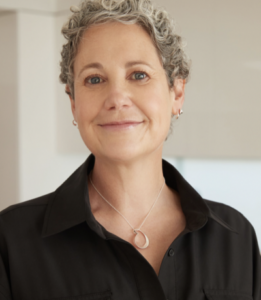
Like most ovarian cancer patients, Associate Professor Siobhan O’Sullivan had no symptoms and was seemingly the picture of health. When she finally started to feel ‘out of sorts’, a blood test and a CT scan revealed the grim diagnoses. ‘Ovarian cancer was the last thing on my mind and at the time I did not completely understand the seriousness of my diagnoses.’ To this day, it is still ‘difficult for friends and family to really appreciate that I have a disease that cannot be comprehensively treated. I often wonder how long it will be until I am no longer healthy enough to live independently. I also wonder about my death. Will it be quick? Will I suffer? My life is very much framed around ovarian cancer.’ Even though Siobhan’s cancer is terminal, she is trying to make the most out of her time. ‘I am raising awareness about ovarian cancer, connecting with people and I still have a sense of humour. I have also set up an award for scholars undertaking research in the field of Animal Studies, one of my fields of research. So, my life has changed profoundly. Ovarian cancer is a horrible disease. We are urgently in need of ways of detecting and treating the disease. Ovarian cancer has fallen behind many other cancers in terms of survivability, and we need to turn that around. Solutions require research and research requires funds. We need the community to be dismayed that women still face such a deadly cancer and we need to turn that dismay into acti
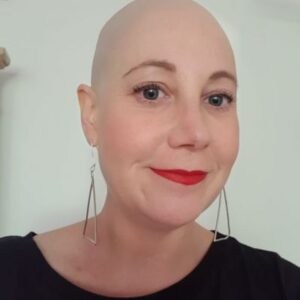
on. Research is the only way we can improve outcomes for women with ovarian cancer. As an academic at UNSW Sydney I have dedicated my life to research. I believe in the power of research to solve problems and make the world a better place.
It’s been almost 18 months since Siobhan’s diagnosis, but she says that ‘in some ways it feels like I was diagnoses just yesterday. But in other ways it seems like my entire l
Raising awareness about ovarian cancer and the urgent need for funds, research, and solutions, brings great meaning to my life and energises me to keep going. I know that it is too late for me. But it is not too late for future generations. Felling as though I am doing something to make things better for other women, in the future, helps me cope.’
ife has about cancer. It is hard to remember a time when I was cancer free. But I am grateful for the time I have. That time affords me the ability to do things that are important to me, and the includes raising awareness about ovarian cancer, educating others about the disease, and advocating for funds and research so other women will not have to go through what I have been through.
Heather’s Story
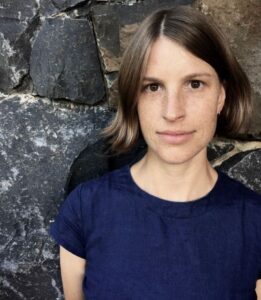 At the young age of 26, you don’t expect for a dull ache in your abdomen to be anything to worry about. However, when Heather’s ache persisted, she felt something wasn’t quite right and requested an ultrasound. It was after that ultrasound that Heather was diagnosed with ovarian cancer.
At the young age of 26, you don’t expect for a dull ache in your abdomen to be anything to worry about. However, when Heather’s ache persisted, she felt something wasn’t quite right and requested an ultrasound. It was after that ultrasound that Heather was diagnosed with ovarian cancer.
The diagnosis was a complete shock. Not only was Heather unusually young but there was also no history in Heathers family of the disease at all. Instead of focusing on the life she had set for her mid-20s, Heather was thrown into a world of surgeries and specialists. By 2016, Heather had undergone three major surgeries followed by chemotherapy.
Heather’s greatest comfort throughout her journey to date has been her supportive partner, family and friends. No less important she says have been the health professionals at Prince of Wales Hospital who worked hard to ensure that her quality of life has not diminished since her diagnosis. “These people continue to give me comfort and care and I really love them all, as I would dear friends!”.
Heather’s cancer has now been stable for two and a half years thanks to a new drug trial she began in 2019. “Although the future is somewhat uncertain, because of this trial I have been able to get on with my life for the time being. I continue to write, perform, teach music and other things that I love doing.”
If Heather could go back to when she was first diagnosed, she would tell herself “It’s very easy to get carried away and worry about the future and expect the worst. But you never know what’s around the corner… I’ve learnt at a young age what is important to me, whether that is career related or the people I want and need in my life. When I was diagnosed, I went through shock, then a huge change in perspective. I understood my life differently and this shift has informed every decision since. I have been able to go through this process because of the drug trial and the incredible people that develop, campaign for and provide these treatments.”
Vicki’s Story
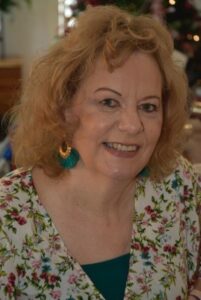 Sometimes, life makes a 360-degree turn when we least expect it. At the age of 54, Vicki was diagnosed with stage 4 ovarian cancer. Vicky knew of the seriousness of her diagnosis as one of her cousins had passed away at the age of 44 from ovarian cancer. Vicki feared for her future and questioned everything, considering that she never smoked, consumed alcohol, maintained a healthy diet, and exercised. Her oncologist told her that it was a rogue gene (BRCA1 & 2 gene mutation) that had increased her risk of developing the disease despite her healthy lifestyle. Typically, the BRCA1 and BRCA2 genes protect you from getting certain cancers. Howev
Sometimes, life makes a 360-degree turn when we least expect it. At the age of 54, Vicki was diagnosed with stage 4 ovarian cancer. Vicky knew of the seriousness of her diagnosis as one of her cousins had passed away at the age of 44 from ovarian cancer. Vicki feared for her future and questioned everything, considering that she never smoked, consumed alcohol, maintained a healthy diet, and exercised. Her oncologist told her that it was a rogue gene (BRCA1 & 2 gene mutation) that had increased her risk of developing the disease despite her healthy lifestyle. Typically, the BRCA1 and BRCA2 genes protect you from getting certain cancers. Howev
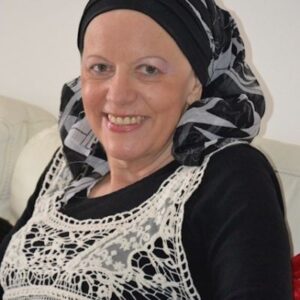
er, some mutations in the BRCA1 and BRCA2 genes prevent them from working properly, so if you inherit one of these mutations, you are more likely to get breast, ovarian, and other cancers.
Early prevention and treatment are important and if you notice anything unusual with your body, it’s best to consult a doctor immediately. Ovarian cancer can progress to stage 4 in a very short time, sharing that during her diagnosis, the surgeon told her that it may have only been there for a few months. Having some knowledge of the disease and improvements in genetic testing and new drug trials helped Vicki to receive targeted and personalised therapy according to her genetic makeup. If a family has a strong history of breast and ovarian cancer, genetic testing is certainly a smart choice. Vicki’s daughter was able to have preventive surgery when she was 32 years old because, through genetic testing, they learnt that her daughter was at risk of developing ovarian cancer as well.
Vicki drew strength and optimism from the compassionate care and support of her Prince of Wales Hospital medical team as well as her family. She is doing better now and puts her energy and focus on spending quality time with friends and family, trying not to sweat the small stuff, and living in the moment. She tells us to ‘Just keep going, stay positive and don’t take on too many tasks. Acknowledge what you can and can’t do. In the beginning, I just wanted to be normal again after surgery and chemotherapy. It became clear in time that my life had changed forever. Now I work on doing things in life that just make me happy.’

